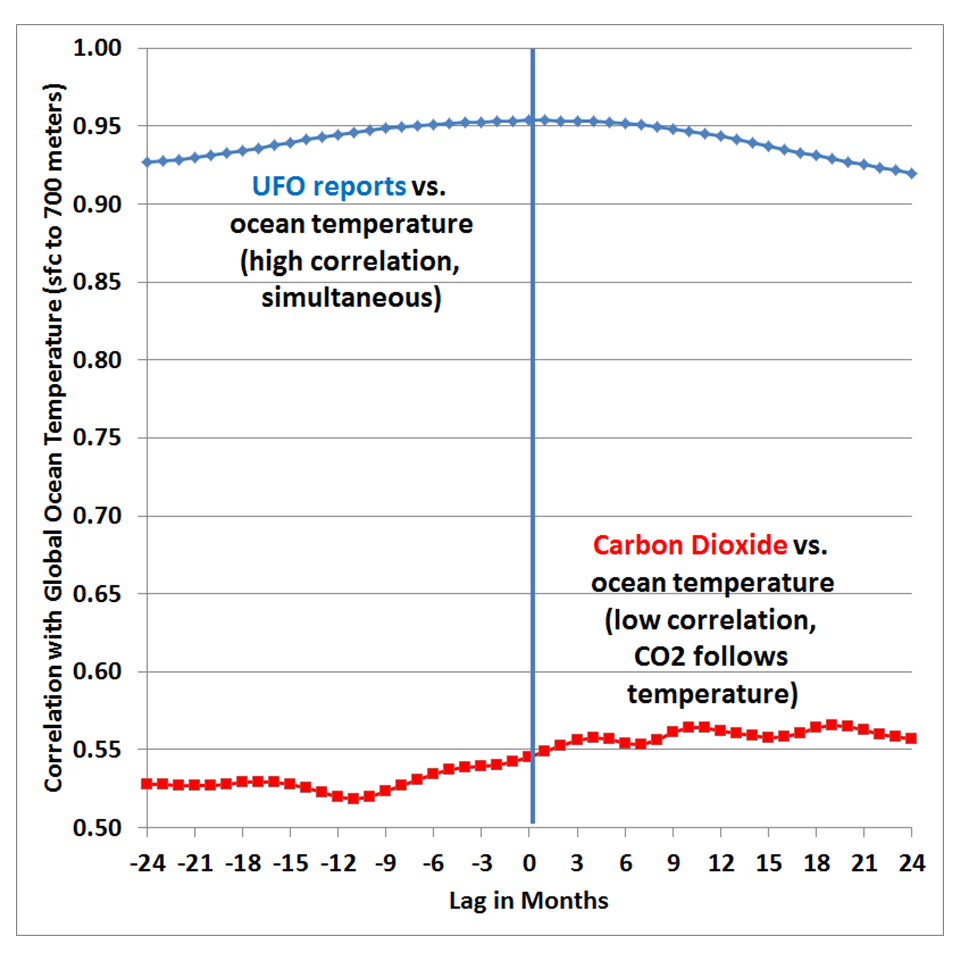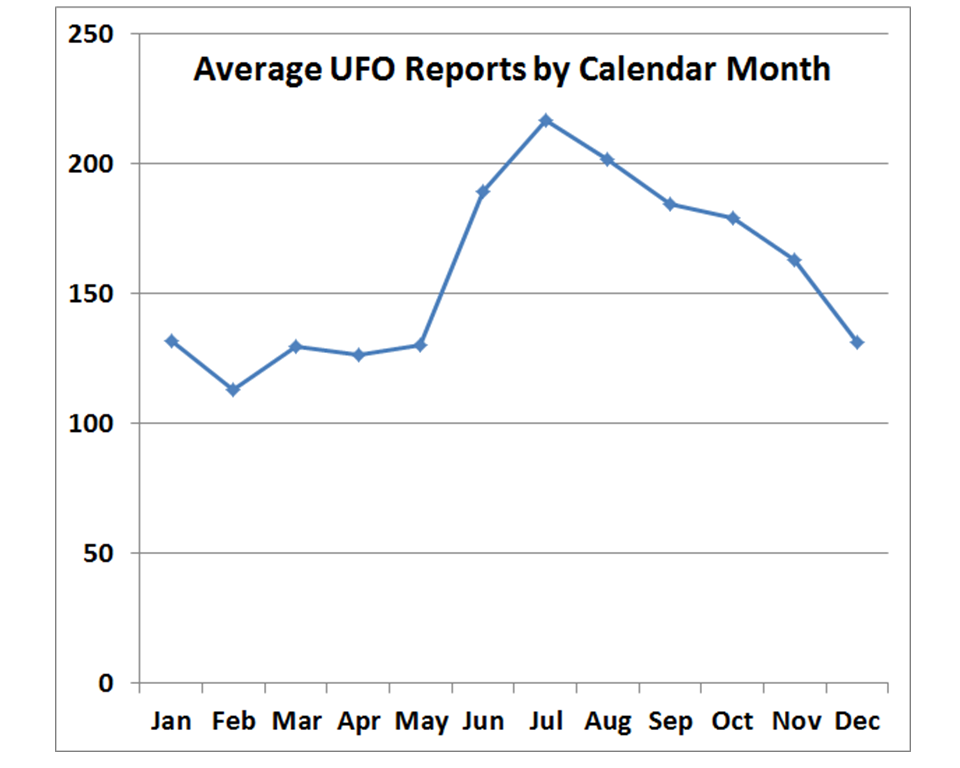I decided it was time to test his claim with real data.
Well, sure enough, the monthly UFO reports in recent decades are highly correlated with the increase in global ocean heat content. In fact, the relationship is so strong, if this was an epidemiological study it would be time to regulate UFOs.
Between 1979 and 2011 the number of UFO reports has been increasing right along with the average temperature of the upper 700 meters of ocean:

Fig.
1. Time series of monthly UFO reports and global average ocean
temperature anomalies from the surface to 700 m depth. Trailing 12-month
averages are also shown.

Fig. 2. Lag correlations between UFO reports vs. upper ocean temperature, and CO2 versus upper ocean temperature.
(And for you alien deniers out there, here’s the spreadsheet with the data and links.)
But correlation isn’t necessarily causation. We need some sort of hypothesized mechanism for how — any maybe why — aliens cause global warming.
My hypothesis is that the extraterrestrials’ spaceships have some sort of powerful heat generators which are dumping energy into the ocean. Maybe an antigravity-based thermogenic flux capacitor technology (that’s just a guess…I’m only a rocket scientist, not a nuclear physicist or movie star).
But why? Why are the aliens trying to warm our oceans?
Do they come from a warm waterworld? Do they want to colonize our ocean after it is sufficiently heated up? Or are we just the proverbial frogs in a pot of water on the stove?
Clearly, aliens like warmer weather, because there is a strong annual cycle in UFO reports, with the peak number of visitations in July, which is when global average temperatures also peak:

Fig. 3. Average number of UFO reports by calendar month, illustrating aliens’ affinity for warmer weather.
Or, maybe they just like to people-watch. More people are out and about in the summer. That would make abductions easier, too. A two-fer.
On an unrelated matter, I’ve also been working on a new generalized theory of where straight lines come from. Since they are all perfectly correlated with one another, I believe they have a common origin…maybe a super line that extends to infinity and beyond, which generates all other, lesser lines. But the linear algebra is proving to be kinda messy. Stay tuned.
Finally, I’d like to conclude with a quote from Mark Twain:
“There is something fascinating about science. One gets such wholesale returns of conjecture out of such a trifling investment of fact.”
A Closing Thought I talked with Michael Crichton before his death about his experiences getting involved in the global warming debate through his lectures, his book State of Fear (in which John Christy and I were represented by a lady scientist), and his congressional testimony on the subject of climate change. I think he believed he was doing a public service, but the politicization of the issue (and the way he was treated in congress) took him totally by surprise. That left a bad taste in his mouth, and he said he would no longer be involved in the climate issue. This is a crazy business we work in, and most sane people choose not to get involved in the public debate.

No comments :
Post a Comment